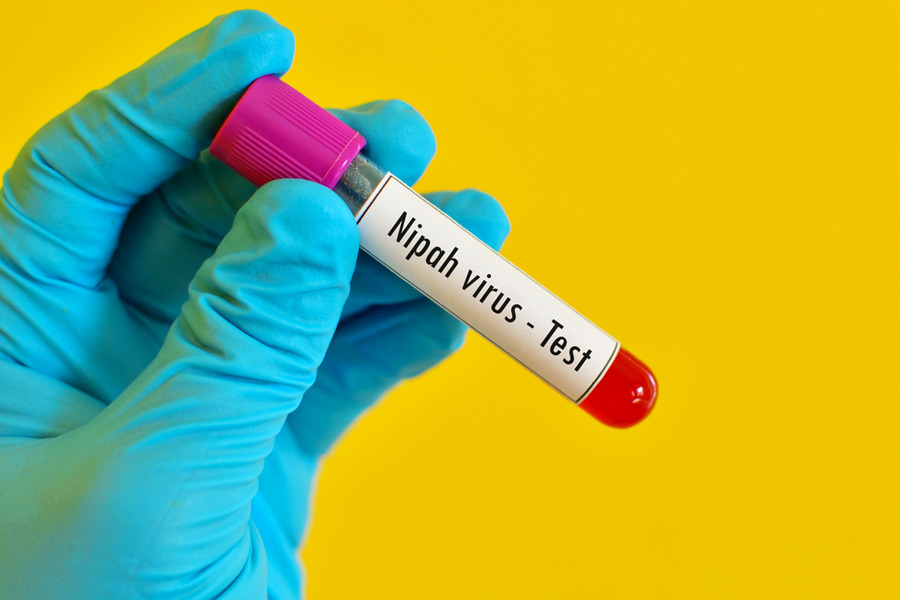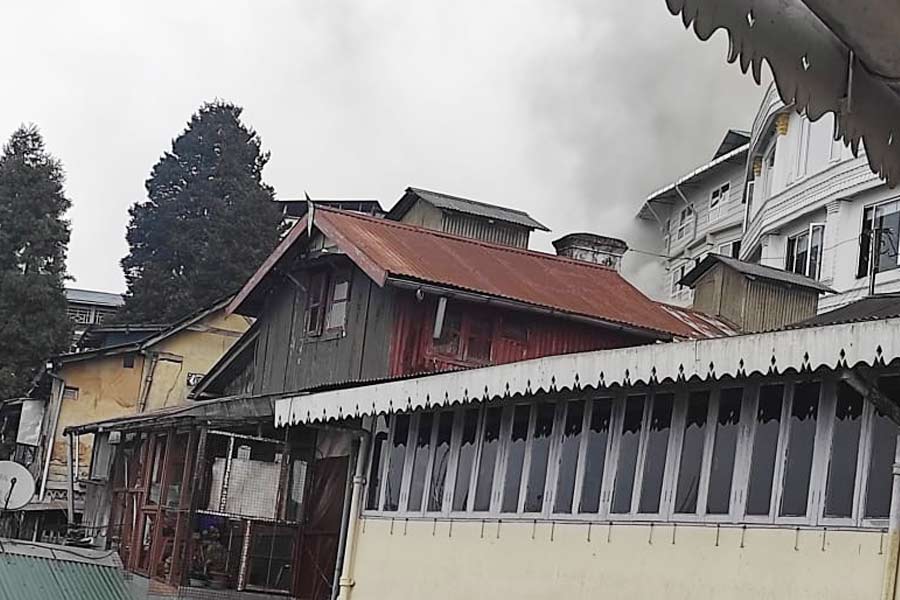As the state awaits the results of samples from the National Institute of Virology (NIV) in Pune, suspecting the presence of the deadly Nipah virus following two fever-related deaths, the Kerala government on Tuesday set up a control room in Kozhikode and advised people to use masks as a precautionary measure.
After two "unnatural deaths" were reported from the district last day, Kerala government has sent five samples to the National Institute of Virology (NIV) in Pune for testing the presence of the Nipah virus.
A district-wide health alert was issued yesterday after two deaths were reported suspected to be due to the Nipah virus infection.
The samples sent for testing to the virology institute includes that of one of the deceased and four of his kin.
Chief Minister Pinarayi Vijayan on Tuesday in a Facebook post said, the government was viewing the two deaths seriously and the health department has issued an alert in the district due to suspicion of the Nipah virus.
He also said that there was no need to worry as most of those who were in close contact with the deceased persons are under treatment.
Earlier in the day, State Health Minister Veena George who reached the district, chaired a high-level meeting to evaluate the situation.
She said the government was taking all precautionary steps in case the results shows the presence of Nipah virus.
The health department today formed 16 core committees for surveillance, sample test and research management, contact tracing, and patient transportation management, among others.
The minister said the whole health machinery in the district is on alert, adding that four of the relatives of the first deceased person are in hospital.
"One child among those hospitalised is currently on ventilator support," she said.
After being informed about the first fever death yesterday, the health department had started the surveillance procedure and identified the contacts and others details suspecting the presence of the Nipah virus.
"We have opened a control room here. To coordinate the precautionary measures, we have formed 16 committees and all the hospitals and the health workers have been instructed to follow the infection control protocol including wearing of PPE kits," George said.
She also advised against unnecessary hospital visits.
"There is no need for any fear or concern as of now, and all these measures are precautionary measures to avoid more cases if the results turn positive. We hope it returns negative," George said.
The minister also said it was advisable to wear masks in public to prevent the spread of the infection.
She said that the contact tracing of the deceased persons has been initiated to identify high-risk contacts.
"At this moment, we have taken all the precautionary steps based on suspicion that the death may be due to the Nipah virus. We have conducted preliminary tests here. But it can be confirmed only after the samples are tested at Pune NIV," she said.
She added that the first death occurred at a private hospital and presently, the victim's children, brother and his kids are also undergoing treatment for fever.
The health department has issued instructions to set up an isolation centre at Kozhikode Medical College hospital and increase the staff required accordingly.
Deaths due to Nipah virus infection were reported in Kozhikode district in 2018 and 2021. The first Nipah virus (NiV) outbreak in south India was reported from Kozhikode on May 19, 2018.
According to the World Health Organization (WHO), Nipah virus infection is a zoonotic illness that is transmitted to people from animals and can also be transmitted through contaminated food or directly from person-to-person.
Among infected people, it causes a range of illnesses, from asymptomatic (subclinical) infection to acute respiratory illness and fatal encephalitis.
The virus can also cause severe disease in animals such as pigs, resulting in significant economic losses for farmers, WHO said.
Except for the headline, this story has not been edited by The Telegraph Online staff and has been published from a syndicated feed.











